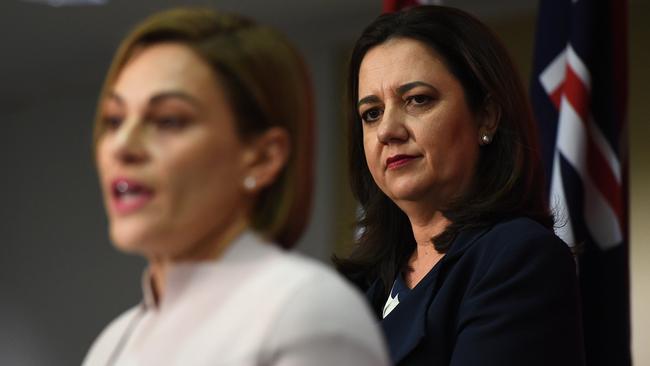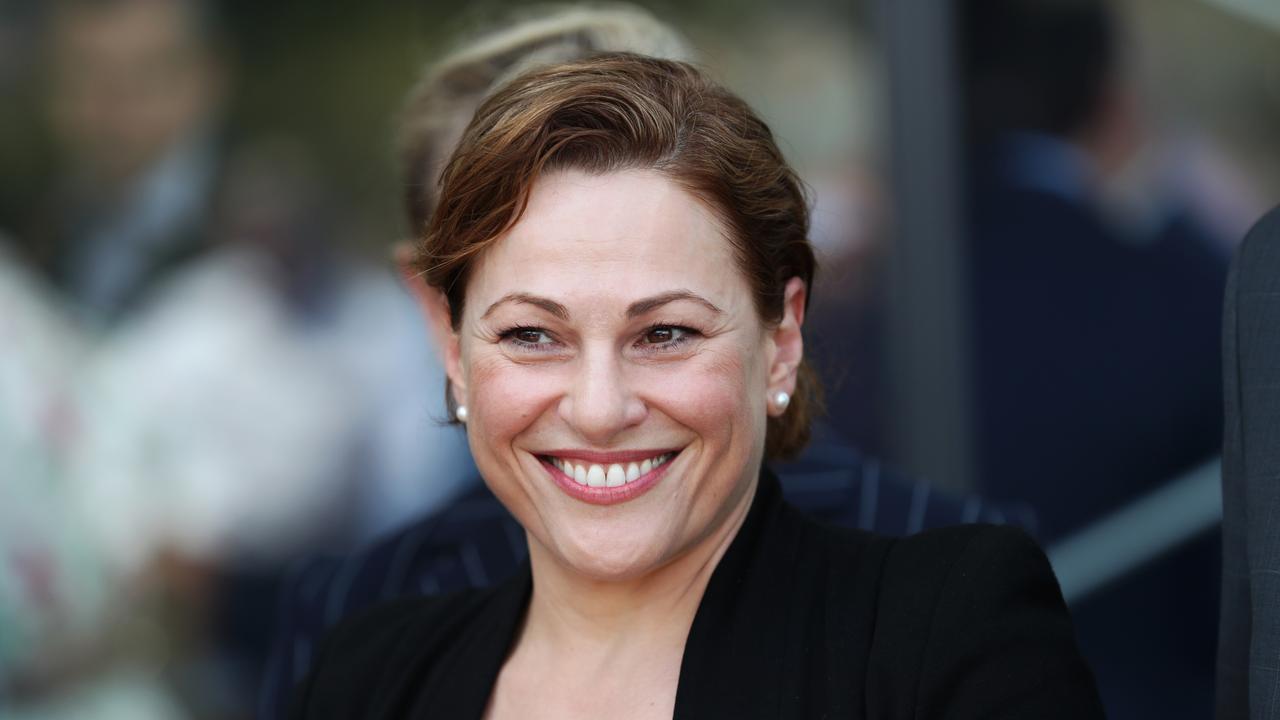Queensland budget: public sector wage bill hits almost $1 billion
Jackie Trad’s first budget speech omitted any mention of Qld’s soaring debt, amid record spending on health and education.

Queenslanders will spend almost $1 billion more on public sector wages next year amid record spending on health and education, as windfall coal royalties deliver both new infrastructure spending and modest surpluses.
Delivering a “no surprises” first budget as treasurer, Jackie Trad’s budget speech omitted any mention of the state’s soaring debt, which is expected to exceed $83bn in 2021-22, rising from 54 per cent of state revenue to 68 per cent.
Strong demand for Queensland coal spurred an impressive 3.7 per cent boost to revenue this year — compared with 6.3 per cent growth in spending and 7.4 per cent growth in state employee expenses.
Revenues are expected to collapse by 0.9 per cent next year as the government rolls out the biggest public works scheme since the Bligh government rebuilt state infrastructure following mass flooding in 2011.
“This Queensland government must do the heavy lifting in infrastructure investment because this federal government simply will not,” the Deputy Premier told parliament, committing to fund such schemes as the Cairns Convention Centre and Brisbane’s Cross-River Rail.
Taxpayers will spend $23.8bn on public sector salaries next year, up $969 million from this year.
“Since March 2015, this government has … employed more than 4800 extra nurses, 1600 doctors and 370 ambulance officers,” Ms Trad said, pledging to hire a further 400 police, 400 nurse navigators, 100 firefighters, 100 midwives and 85 counter-terrorism officers.
Ms Trad announced a coal-fired surplus of $1.51bn for the year ending this month, followed by modest surpluses of $148m next year, $160m in 2019-20, $110m in 2020-21 and $690m in $2021-22.
Asked whether Queensland would ever regain its AAA credit rating, Ms Trad said she expected ratings agencies would not be concerned about borrowings to fund infrastructure.
She also claimed the government was exercising “discipline” in its recurrent spending.
The Treasurer’s figures were based on optimistic assumptions about the economy’s future, with accelerating wages and falling unemployment. Household consumption and business investment were expected to remain strong.
The Palaszczuk government expects to raise $1.32bn over four years from a new $70/t charge on dumping garbage in the state — about 30 per cent of which will be used to fund other government services, opening the government to allegations of price gouging.
Health spending is projected to rise by four-times the rate of population growth to $17.3bn in this year alone, plus $985m in capital investment in health facilities.
Spending on education will also rise to $14bn this year, with a pledge to employ an additional 3700 teachers over four years on top of the 4700 extra teachers and teachers’ aides hired since March 2015.
Much of the government’s infrastructure spending was announced in advance of the budget.
About two-thirds of total infrastructure spending next year will be allocated outside Brisbane including $534.3m to continue the Toowoomba Second Range Crossing project, $250m for Townsville’s new rugby league stadium and $176m towards the Rookwood Weir scheme.
In southeast Queensland, big ticket items included $1.779m to upgrade the M1 and Bruce Highway and $160.8m towards duplicating the Nambour Rail line.
Ms Trad announced $330m over five years to conserve the Great Barrier Reef, and a $50m capital grant to support the development of reliable solar power.
A total $1.3bn was allocated for child and family services, along with $1.5bn for the National Disability Insurance Scheme and $500 for the National Redress Scheme for survivors of child sexual abuse in institutional settings.
Industry policy announcements included $155m on wage subsidies for bosses to hire unemployed workers, $73m to provide grants for innovation and research, and $26m to extend payroll tax relief for businesses that employ apprentices and trainees.
The budget provided $239m to improve indigenous housing, $12m to improve drinking water in the Torres Strait, and $5m to help remove waste metal, such as abandoned cars, from remote communities.
The budget provides $5.6bn in concessions for disadvantaged households to help with their electricity, water, transport, education and housing bills.



